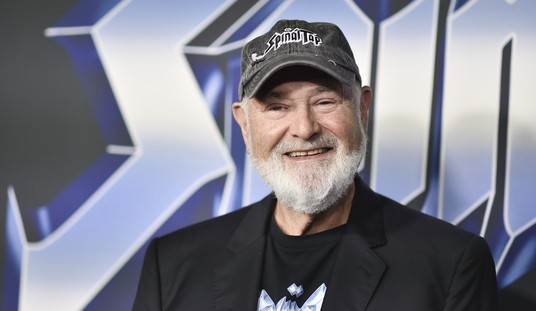I have no objections to Jeb Bush running for president. He obviously has a wide appeal as a potential candidate. With a Mexican wife, and as a man who speaks fluent Spanish, he would be able to increase the Hispanic vote in the GOP column. On the other hand, many in the Republican base find his position on immigration untenable, and would fight him tooth and nail during primary season. He is also a serious advocate of education reform. His support of Common Core, however, will also find many who are in the conservative ranks objecting, since they fear that Common Core represents educational centralism and having the government ram federal standards down their throats.
What I do object to is that Bush is already being heralded as the obvious candidate, the man to whom the big money must and will flow. As the Washington Post reports:
Many of the Republican Party’s most powerful insiders and financiers have begun a behind-the-scenes campaign to draft former Florida governor Jeb Bush into the 2016 presidential race, courting him and his intimates and starting talks on fundraising strategy.
Apparently, whoever makes up this somewhat mysterious Republican “establishment” fears that their former hope, Gov. Chris Christie, is damaged goods. Secondly, they fear that unless they intervene quickly behind a chosen candidate, Sen. Rand Paul could win the nomination and, in a time of the necessity of strong actions abroad by the United States, could push their party and the country in an isolationist direction. As one prominent unnamed bundler told the reporters about Jeb Bush, “he’s the most desired candidate out there.” The article goes on to note that at a moment’s notice, Bush could activate a waiting national fundraising effort that would give him more funds than any competitor in the Republican ranks.
Whatever happened to letting members of the Republican Party choose their own candidate freely, and holding a convention in which delegates actually can make their own choice for the nominee? Evidently, that moment has already passed, and the folks who gave us McCain and Romney have already made up their minds.
Again, I do not necessarily agree with the arguments against a Bush run, but those arguments will be made, and the threat always is lurking in the wings that some conservatives, finding that their favored candidate is not likely to get the nod, will begin to talk about running a “real conservative” on an independent line in 2016. And such an act would siphon off just the right amount of votes to put Hillary Clinton in office.
As for the Democratic Party, its equivalents in the big-money community have anointed Hillary as their preferred candidate. Like Jeb Bush, she has not said she is going to run, but is already taking all the steps to have the money ready to flow and the organizations on the ground should she decide to take the step.
Hillary Clinton also has obvious vulnerabilities: Benghazi, Benghazi and Benghazi for a start, followed by the “Russian reset” with which she is identified. And nationally, Hillary would do all she could to counter her negatives by resurrecting the charge that Republicans are “waging a war on women,” and by arguing that nothing could destroy their goal more than putting the first woman president in the White House.
Then there is the Democratic base, whose members would most likely feel Hillary is too much of a centrist, a DLC-type Democrat in the mold of her husband who would placate big money and Wall Street. Already, Senator Bernie Sanders, an unabashed democratic socialist representing Vermont, is talking about the possibility of running his own independent campaign.
As he told The Nation in an exclusive cover interview with John Nichols last week, he is “prepared to run for President of the United States.” Sanders “has begun talking with progressive political strategists, traveling to unexpected locations like Alabama and entertaining the kinds of process questions that this most issue-focused member of the Senate has traditionally avoided.”
Ever the socialist, Sanders argues that “somebody has got to represent the working class and the middle-class in standing up to the big-money interests.” You might think Hillary Clinton is a good leftist and fervent class warrior, but Bernie Sanders disagrees. “I like Hillary,” he says, “but I think, sad to say, that the Clinton type of politics is not the politics…that I’m talking about.” What the nation would get with Hillary in the WH, he argues, is “the same-old, same-old Robert Rubin type of economics…or ‘centrist’ politics, or continued dependence on big money or unfettered ‘free trade’-that is not what the country needs.”
Much as some conservatives argue that only a Ted Cruz-type candidate can mobilize the base and get conservatives out to the polls to win, Sanders argues that Hillary does not have “the politics that galvanizes the tens of millions of people today who are thoroughly alienated and disgusted with the status quo.” Hillary Clinton, he says, has the wrong politics and is the representative of “the Democratic establishment.”
In Bernie Sanders’ eyes, many Democrats are in fact “not terribly different from some of the Republicans.” This is the mirror image of the argument I heard Glenn Beck say on radio a while back — namely that the Republican Party is finished and represents nothing, and that true conservatives should think of backing their own candidates outside of the tarnished Republican brand.
Sanders fully realizes that if he decides to run, he will put into place the Nader effect, getting just enough votes to swing the election to make it a Republican win. That alone might give him pause. But he also believes firmly that “operating in the framework of the Democratic Party” is not a “better approach.” He also believes that the people understand that unless the party changes, they will lose white working-class votes. In his eyes, the only way to win is by a massive shift to the kind of socialist policies he openly supports.
So we have the possibility of a Clinton nomination on the Democratic side and a Bush nomination on the Republican side, and the chance that in both parties, mavericks dissatisfied with that choice will favor an independent run of their own. For now, all bets are off, but a third-party run — either by a disenchanted Democrat or a conservative or libertarian Republican — always hurts the party they broke from and more likely ensures the political victory of a candidate they all disdain.









Join the conversation as a VIP Member